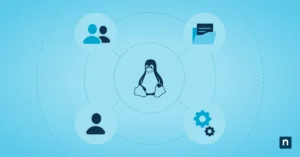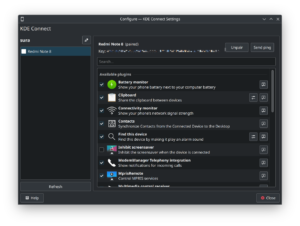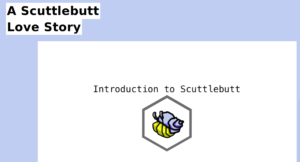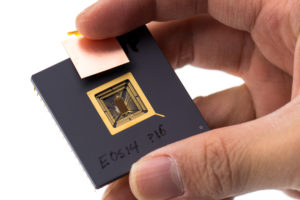The basis for the Android operating system is the Linux kernel. Its development began in 1991 by Linus Torvalds as a hobby project to understand his personal computer, but also as a better and free alternative to the Minix operating system of his role model, Andrew Tanenbaum. At the same time, Linux should be developed as a low-cost system for teaching operating systems, Minix was neither free of charge (at least 1565 USD per license) nor really Open Source at that time and therefore was only conditionally suitable for university purposes, for which it was actually intended. In a public dispute with Torvalds as a model, he openly explained his main motives for the development of Linux. First of all the free availability and distribution of his software, “Make minix freely available, and one of my biggest gripes with it will disappear.
Open Source or Free Software
Andrew Tanenbaum describes what exactly an operating system is in his book Operating System design and implementation. “The most fundamental system program is the operating system, whose job is to control all the computer’s resources and provide a base upon which the application programs can be written.” It can thus be described as the interface between the actual hardware and the programs and services executed by the user.
On OpenSource.org, Open Source software, which includes the Android Open Source Project, is defined as follows, especially in point 6:
6. No Discrimination Against Fields of Endeavor
The license must not restrict anyone from making use of the program in a specific field of endeavor. For example, it may not restrict the program from being used in a business, or from being used for genetic research.
This means that software under open source license can be used for a company at its own discretion. Google may use it to justify the trade of personal data, especially with regard to advertising.
In contrast, the Free Software Foundation defines free software as software “that respects the freedom and community of users. More generally, this means that users have the freedom to run, copy, distribute, study, modify and improve software.
Even if the two general definitions seem quite similar at first glance, there is a crucial and ethical difference whether only the source code is open to everyone, as the Open Source Initiative demands, or the freedoms of a user is to be preserved, as the Free Software Foundation defines it.
Android Open Source Project
The open source regulations are no longer necessarily fulfilled with Android, at least not if so-called Google Apps, such as the Google Play Store, the Google Phone App or other proprietary software, such as binary blobs from the respective manufacturers, are installed. Thus many Android systems are open source software from the basic framework. However, this manifesto is undermined by implemented proprietary software. Free Software is not even to be thought of, the freedom of the user seems marginal here, especially in further modified Android interfaces such as MIUI, EMUI or Samsung One.
It becomes clear that not only Google, but also many other manufacturers tap or collect user data. However, Google gets user data even without using Google Apps by the way the basic configuration of the Android framework is meant to be, such as the default DNS nameserver configuration, which is usually set to Google’s very own, nameserver viz. 8.8.8.8. In addition, an Android smartphone without Google Apps such as the Play Store loses many of the functions that users appreciate about Google’s Android OS.
There is a need for reasonable alternatives, like an alternative App Store, for example F-Droid for FLOSS apps or a replacement for the Play Services, which run under the Android interface and not only track user data for Google Analytics, but also ensure the smooth functioning of many third party apps, which are based on these trackers and would not work without them. As a replacement for these Google Play Services, microG, a clone of various Google Services based on the concept of free software, can be used. While some components of MicroG like its own front-end for Play Store are still in its early phase of development, but other core components has already shown very promising results for many users, including the core functionality that many third-party vendors use to tie their applications to the Google Play services, also alternative tracking and cloud messaging services have also been successfully implemented as of yet.
/e/OS, a deGoogled Android based Custom ROM for beginners
An all-round solution or a complete replacement of Google’s ecosystem, with serious efforts made towards degooglisation of an Android based ROM, a soft-fork of LineageOS, has been the goal of e-Foundation with /e/OS, a google-free Custom Android based ROM. It is not a rebranding of LineageOS with microG as commonly misunderstood. It focuses on ungoogling or degoogling of Custom ROM and to offer a robust alternative of mobile ecosystem that respects the privacy and security of its user’s data. It aims to replace Google account with /e/account that offers a set of online services hosted with open-source server software solutions like Nextcloud, OnlyOffice, Postfix, Dovecot, fork of Searx etc. All these online services including cloud drive, email, sync, web search, calendar, notes, tasks are clubbed together as ‘ecloud’ and are truly integrated in /e/OS to bring a seamless experience to its users. /e/OS is a truly open, pro-privacy and cares for ease of use and installation out of the box. It is run by a French non-profit and cares for its community, comprising of pro users and regular privacy enthusiasts. The gist of “unGoogling” is to gradually expunge any code that is sending any data to Google servers like time servers, connectivity servers, DNS nameservers, geo-location services etc. /e/OS offers you a smart-phone that works best without requiring Google Apps, libraries, API or an account. Further, it has also partnered with environment friendly and ethical smartphone company called Fairphone from a Dutch social enterprise to officially get you FairPhone with /e/OS on it. Owing to co-operation between both parties, you now get to lock your bootloader which solves a lot of issues that recent Google SafetyNet technology changes bring to the whole custom ROM community.
So, to reduce the popularly known and above said snooping and accumulation of user data by Google’s Android to a minimum, I believe /e/OS, a deGoogled Android based custom ROM, can be great choice for a lot of users including beginners and pro users.









